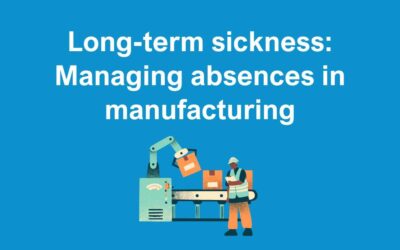The cost of living crisis has become an increasingly pressing issue, exacerbated by the global COVID-19 pandemic. As the pandemic disrupted economies, led to job losses, and strained personal finances, many employees found themselves in dire financial circumstances. Now, more than ever, employees require additional support to navigate these challenging times. One potential solution to aid employees facing financial crises is the implementation of a hardship fund in workplaces.
The COVID-19 pandemic has brought to light the deep-seated vulnerabilities within our economic systems. The rising cost of living, coupled with stagnant wages, has made it increasingly difficult for individuals and families to make ends meet. Basic necessities such as housing, healthcare, education, and food have become increasingly unaffordable, leaving employees vulnerable to financial instability.
In the face of such challenges, it is crucial for employers to recognise the financial distress faced by their employees and provide them with adequate support. This type of financial support can play a pivotal role in bridging the gap. It can also offer immediate assistance to employees who find themselves in financial crisis.
In this blog post, we will explore what the Hardship Fund is, how it works, and how it can be introduced to your business.
What is a Hardship Fund?
A hardship fund is a dedicated resource within an organisation that offers financial aid to employees experiencing severe financial difficulties. It serves as a safety net, helping individuals navigate through unforeseen circumstances such as medical emergencies, family crises, or unexpected expenses. By providing grants or interest-free loans, this offer temporary relief to employees, helping them meet their basic needs and regain stability.
The Importance of introducing This Support
Implementing this type of fund within organisations can play a vital role in supporting employees during financial crises. Here’s how they can make a difference:
Immediate Financial Relief
A hardship fund provide swift and direct financial assistance to employees facing unforeseen circumstances such as medical emergencies, sudden job loss, or unexpected expenses. Through grants or interest-free loans, employees can address urgent needs and stabilise their financial situations.
Mitigating Financial Stress
Financial stress can impact employees’ well-being, mental health, and overall productivity. By offering this support, employers help alleviate the burden of financial worries, enabling employees to focus on their work and maintain their performance levels.
Empowering Employees
This can also empower employees by providing a safety net during times of crisis. They demonstrate that employers value their workforce and are committed to supporting their financial well-being. Such support can boost morale, increase job satisfaction, and enhance employee loyalty and engagement.
Preventing Long-term Debt
A Hardship fund offer an alternative to employees resorting to high-interest loans or credit cards, preventing them from falling into a cycle of debt. By providing accessible financial support, employers can help employees avoid long-term financial hardships and the negative consequences associated with excessive debt.
Building a Supportive Workplace Culture
Introducing something like this reflects a business’ commitment to its employees’ welfare beyond the workplace. It fosters a supportive workplace culture where employees feel valued, cared for, and understood. This, in turn, promotes teamwork, collaboration, and loyalty among employees.
Conclusion:
The cost of living crisis and the COVID-19 pandemic have placed an immense strain on employees, pushing many into financial crisis. Employers have a unique opportunity to provide crucial support through a hardship fund. By implementing these funds, organisations can alleviate financial stress, empower employees, and foster a supportive workplace culture. Hardship funds serve as a beacon of hope, offering immediate assistance to employees facing financial crises and helping them navigate through these challenging times. It’s time for employers to recognise the urgency of the situation and take proactive steps.
If you would like support to introduce a hardship fund to your business, contact our HR experts now.







